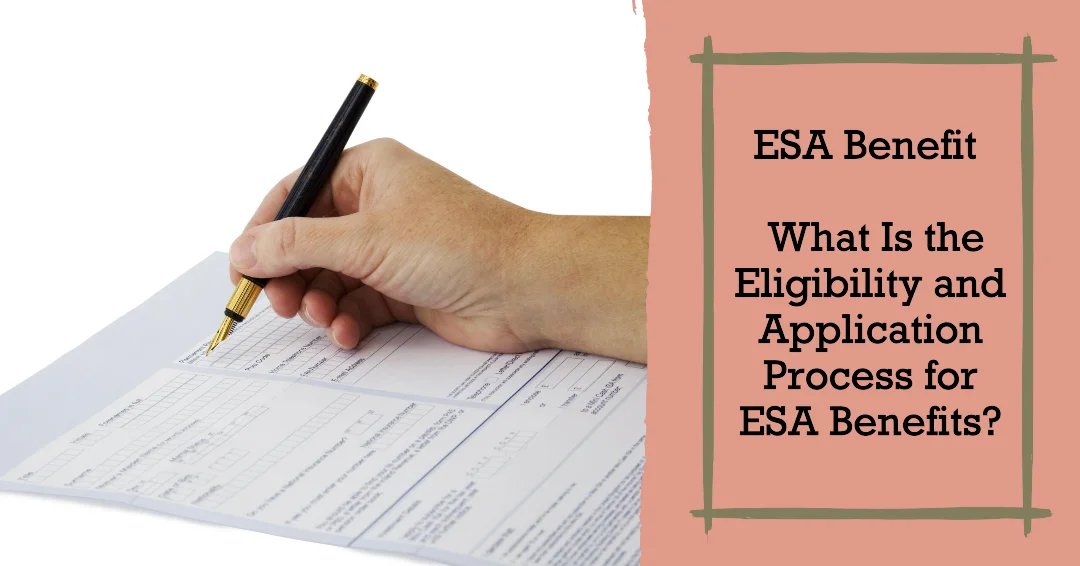For Advertising Contact Us
ESA Benefit – What Is the Eligibility and Application Process for ESA Benefits?

Just like any other government benefit, Employment and Support Allowance (ESA) has specific eligibility criteria and an application process that individuals need to follow in order to receive financial support. This blog post will outline the key requirements that determine eligibility for ESA benefits and provide a step-by-step guide on how to apply for ESA benefits. Understanding these crucial details can help individuals navigate the system more effectively and access the support they may be entitled to.
Understanding ESA Benefits
Definition and Purpose of ESA
For individuals who are unable to work due to a disability or health condition, the Employment and Support Allowance (ESA) provides financial support to help with living costs and expenses. This benefit is designed to offer assistance to those in need who are unable to earn a sufficient income due to their health condition.
Types of ESA Benefits
An important aspect to understand about ESA benefits is the different types of support available to applicants. There are two main types of ESA benefits:
- Contributory ESA
- Income-related ESA
On top of these primary categories, ESA benefits are also classified into several groups, including the Work-Related Activity Group, Support Group, and Assessment Phase. Recognizing these distinctions is crucial for applicants to determine the type of support they may be eligible for.
Understanding Types of ESA Benefits
In the matter of ESA benefits, it is important to examine deeper into the various categories available to applicants. These include:
- Contributory ESA – Based on National Insurance contributions
- Income-related ESA – Income and savings dependent
| Work-Related Activity Group | Provides support and help to enable a return to work |
| Support Group | For those considered unable to work due to the severity of their health condition |
| Assessment Phase | Initial period while a decision on ESA eligibility is being made |
Eligibility Criteria for ESA Benefits
Qualifying Conditions
One of the key aspects of qualifying for Employment and Support Allowance (ESA) benefits is meeting the qualifying conditions set by the Department for Work and Pensions. These conditions assess your ability to work and the impact of any health conditions or disabilities on your ability to engage in employment.
Financial and Employment Considerations
An important aspect of determining eligibility for ESA benefits includes assessing your financial situation and employment status. This may involve looking at your income, savings, and employment history to determine if you meet the financial criteria for receiving ESA benefits.
Conditions such as your current employment status, work capability, and the impact of any health conditions or disabilities on your ability to engage in work are crucial factors taken into account when considering eligibility for ESA benefits. Understanding these considerations can help individuals determine if they may qualify for this vital form of financial support.
The Application Process for ESA Benefits
Step-by-Step Guide to Applying
Many individuals who are looking to apply for Employment and Support Allowance (ESA) benefits may find the process overwhelming. To simplify the application process, here is a step-by-step guide to help you navigate through the system:
| Step 1 | Check your eligibility for ESA benefits |
| Step 2 | Complete the ESA1 form or apply online |
| Step 3 | Attend a Work Capability Assessment (WCA) |
Required Documentation and Information
For individuals applying for ESA benefits, it is vital to gather all required documentation and information before starting the application process. This includes:
The necessary documentation may include medical records, doctor’s notes, employment history, and any other supporting documents that demonstrate your inability to work due to a disability or health condition.
Maintaining and Updating ESA Benefits
Ongoing Responsibilities of ESA Recipients
For individuals receiving Employment and Support Allowance (ESA), it is imperative to meet certain ongoing responsibilities to continue receiving the benefits. This includes attending medical assessments, participating in work-focused interviews, and providing any necessary updates or evidence regarding your health condition or employment status.
Circumstances that Affect ESA Eligibility
One important aspect to consider in maintaining ESA benefits is understanding the circumstances that may affect your eligibility. Changes in your health condition, income, or living situation can impact your entitlement to ESA. It is crucial to report any such changes promptly to the Department for Work and Pensions to ensure your benefits are correctly adjusted.
The Department for Work and Pensions regularly reviews ESA claims to determine if recipients still meet the eligibility criteria. Failure to report changes in circumstances or provide requested information may result in benefits being stopped or reduced. It is important to be proactive in keeping the authorities informed to avoid any disruptions in your ESA payments.
To wrap up
Upon reflecting on the eligibility criteria and application process for Employment and Support Allowance (ESA) benefits, it is clear that individuals who are unable to work due to a disability or health condition can access financial support through this program. By providing evidence of their condition and undergoing assessments, claimants can determine their eligibility and receive the necessary assistance to help them through challenging times. It is important to follow the application guidelines meticulously to ensure a smooth process and timely approval of benefits. Overall, ESA benefits serve as a crucial lifeline for those in need, offering financial aid and support for individuals facing health-related obstacles to employment.



